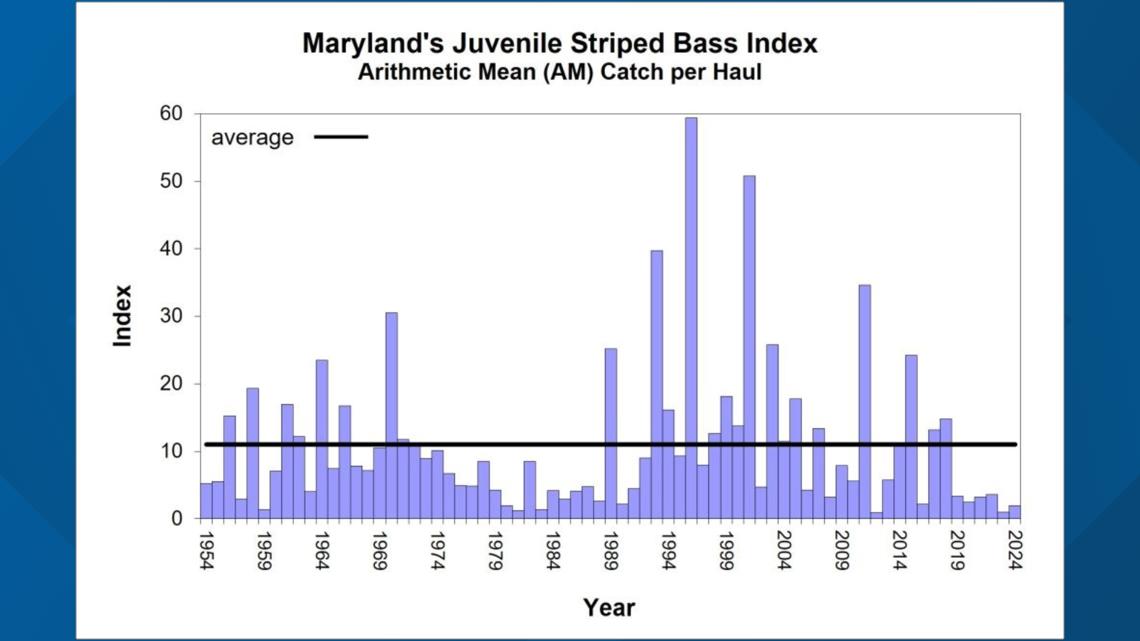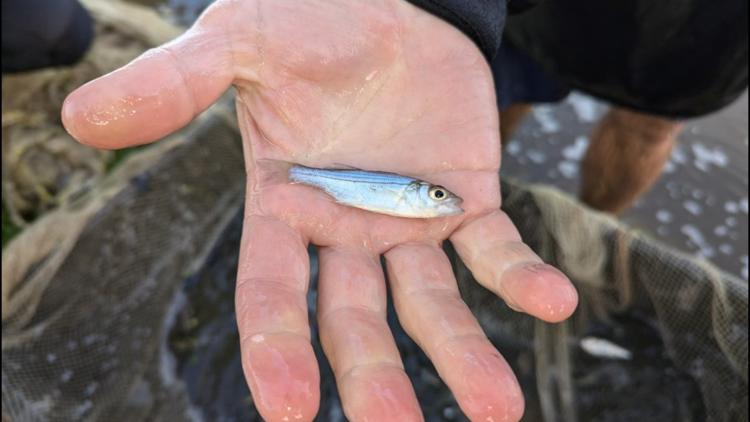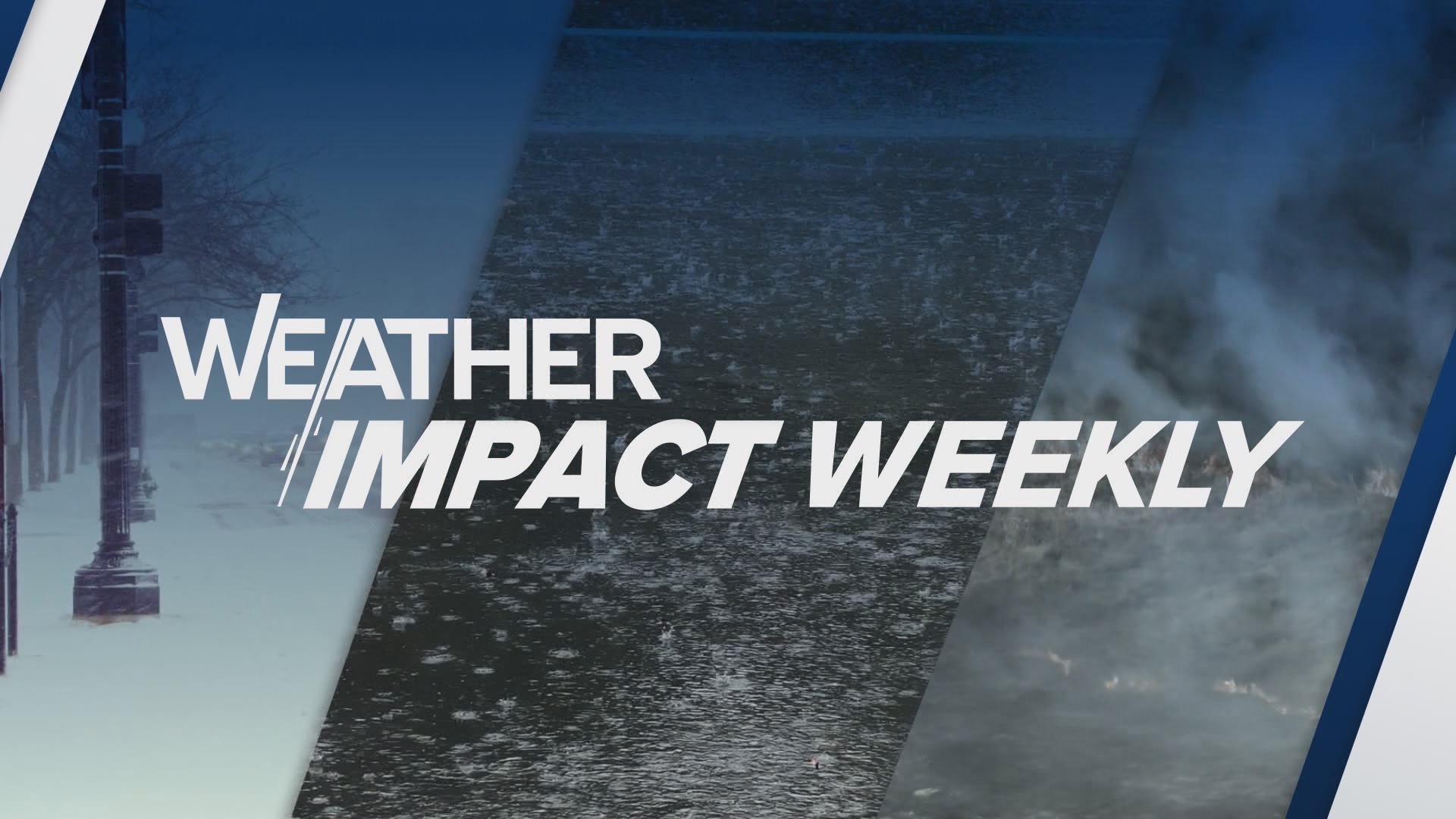MARYLAND, USA — Maryland's rockfish are struggling to reproduce, putting the species at risk. That's according to the results of the 2024 juvenile striped bass survey, which tracks the reproductive activity of Maryland's state fish in the Chesapeake Bay.
According to a report from the Department of Natural Resources, the number of young rockfish born in 2024 is much lower than normal—just 2.0 compared to the usual average of 11.0. This marks the sixth year in a row that rockfish have had poor reproduction rates.
“These results underscore the complexity of managing a coastal migratory species whose life-cycle is influenced by environmental conditions during a brief spawning period,” said Maryland DNR Fishing and Boating Services Director Lynn Fegley. “We will continue to explore ways to conserve and enhance the spawning population during this time when we are adding fewer young fish to the population.”
During this annual survey, fishery managers examine 22 sites located in four major striped bass spawning areas: the Choptank, Nanticoke, and Potomac rivers, and the upper Chesapeake Bay. Biologists visit each site three times per summer, collecting fish with two sweeps of a 100-foot beach seine net. The index represents the average number of young-of-year striped bass found in each sample. The juvenile striped bass average less than 3 inches long and are not usually encountered by anglers. Similar fish surveys conducted this summer in the Patapsco, Magothy, Rhode, West, Miles, and Tred Avon rivers found fewer striped bass, also known as rockfish.
In recent years, Maryland has implemented management actions aimed at rebuilding the spawning stock, including reductions to catch limits, increased protections for spawning fish, tighter slot limits, and season closures. However, warm conditions in winter continue to negatively impact the reproductive success of striped bass, whose larvae are very sensitive to water conditions and food availability in the first several weeks after hatching.





